Think of “Silicon Valley” when you hear about Special Technology Zones. Pakistan has finally shifted its focus from a very land heavy to tech heavy investment in the coming years.
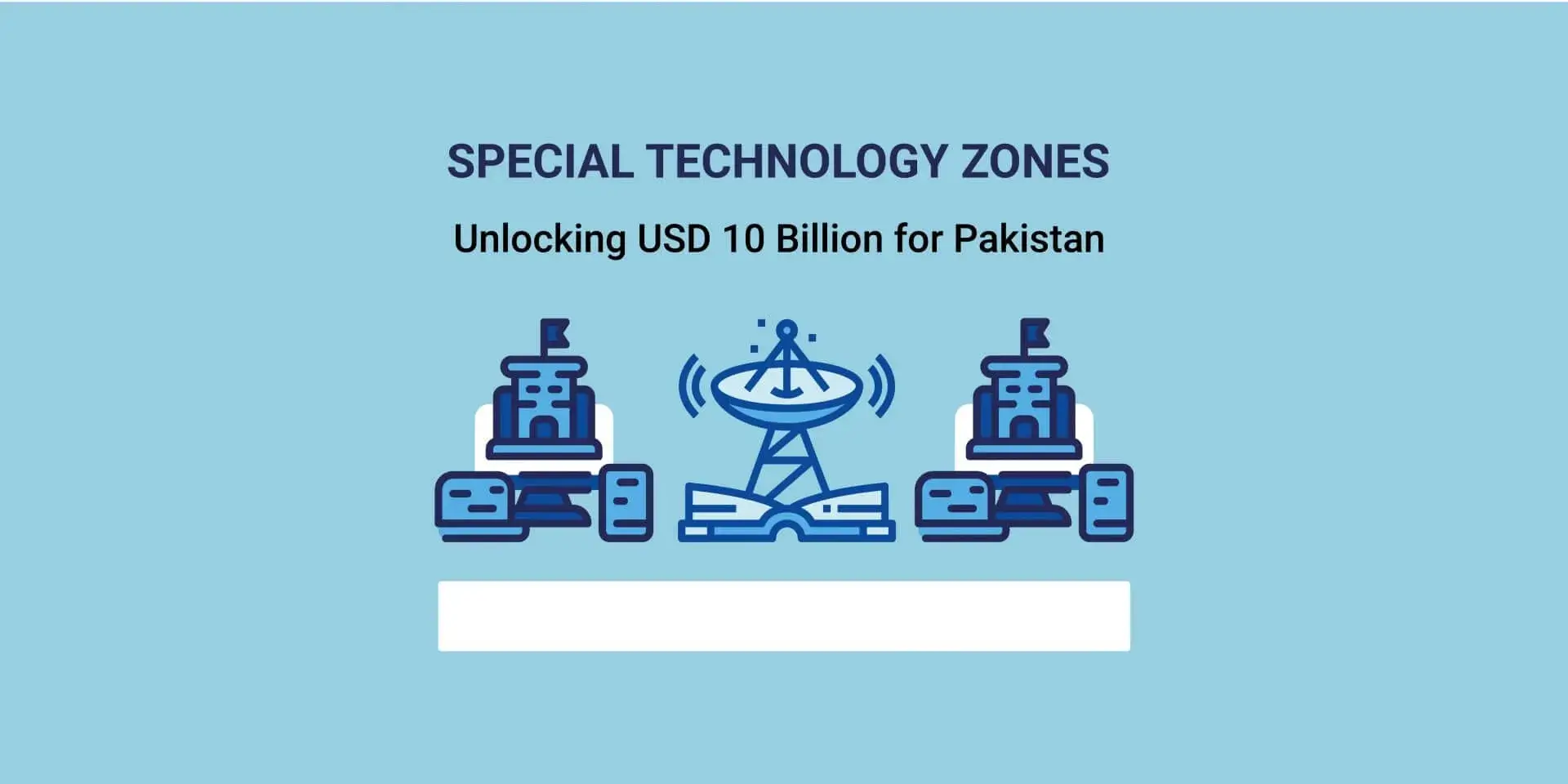
Think of “Silicon Valley” when you hear about Special Technology Zones. Pakistan has finally shifted its focus from a very land heavy to tech heavy investment in the coming years. But this is not to say that real estate won’t grow in tandem with this sort of tech investment.
Gaper shares how Pakistan can make the most of this move towards a more tech savvy economy
Spearheading this move, the government has now realized that in order to increase tech exports, it has to streamline and incentivize investments into the growing tech market nationally as well as internationally.
In our strife to bringing the most authentic news and research, Gaper brings concise data to help stimulate the discussion around tech investments.
Asian tech industries started on creating Special Technology Zones (STZs) a long time ago and have been reaping benefits overtime. It is high time, that Pakistan too gets its fair share of the pie – as we are at par with the global requirements in tech knowledge.
“The biggest hurdle Pakistan faces is in building the right infrastructure; this is where special technology zones come in. This will not only provide the IT/Digital sector with sustainable infrastructure but the associated incentives will help the economy flourish faster than previously anticipated.” Mustafa Najoom, VP of Sales.
The problem identified that led to the push towards STZs is that the knowledge and investment is scattered around the country. There is no specific place where everything is clustered. There is no single building in the whole country, where 3000 individuals can sit to cater to a single global client and handle their tech needs or even their customer service (read call centers).
We may have the manpower and knowledge to handle at least 3 times of where we are at currently; but we do not yet have the infrastructure to support it. Hence, in making it a more enabling environment STZs are the need of the hour.
Ahmed Muzamil, VP of Technology, shares, “Pakistan has the second youngest population in the world which unfortunately is grossly underutilized. Building STZs will create thousands of employment opportunities and will help boost Pakistan’s standing in the global digital economy.”
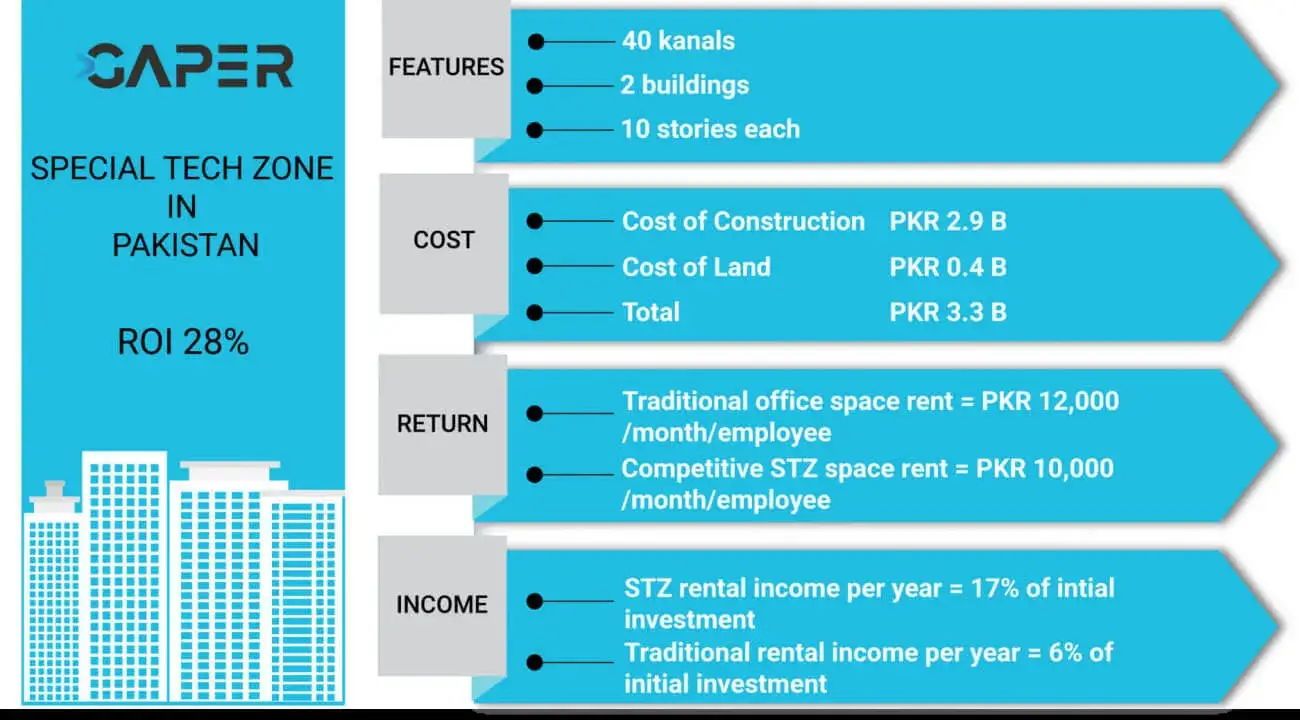
The immediate boost to the Pakistani Technology Industry will be increase in job creation, knowledge and technology externalities, enhancing human capital and tech expertise, diversification, capital and catalyst for investment in untapped industries, spillover effect on other industries like FMCGs, etc. and also increased minority representation.
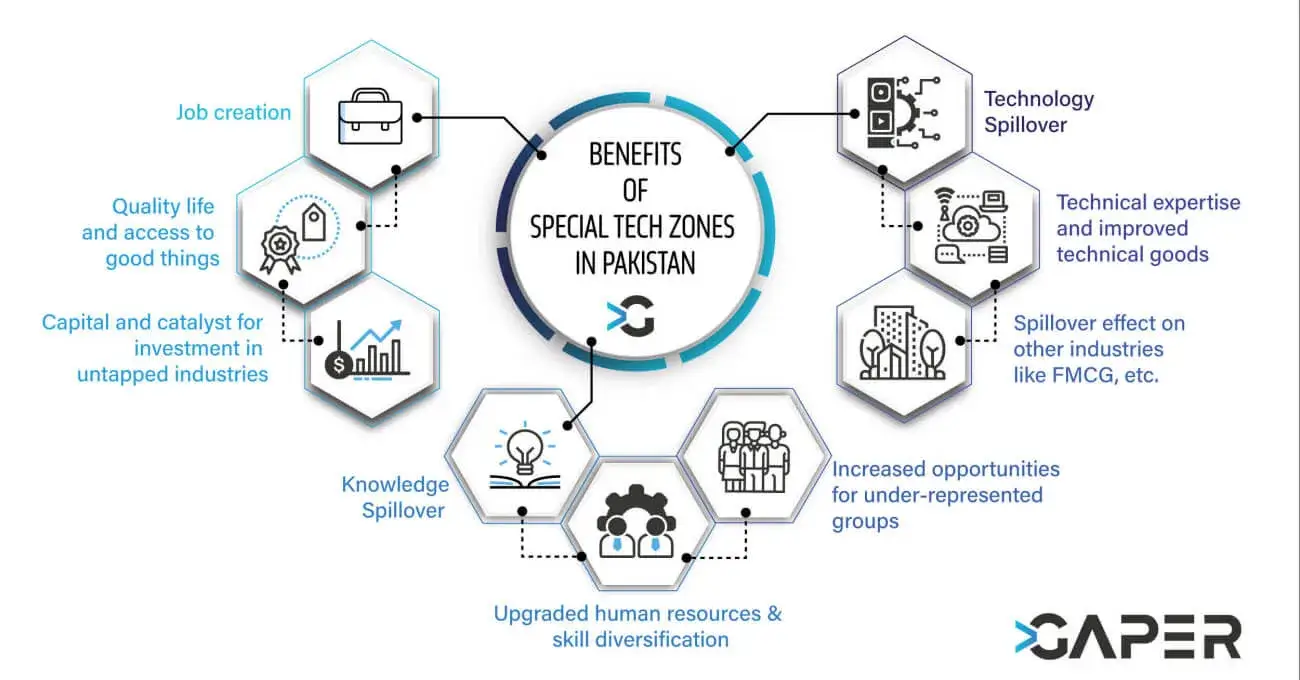
The Government is also specifically incentivizing this move to make it an even sweeter deal for investors. Be it real estate or software hubs.
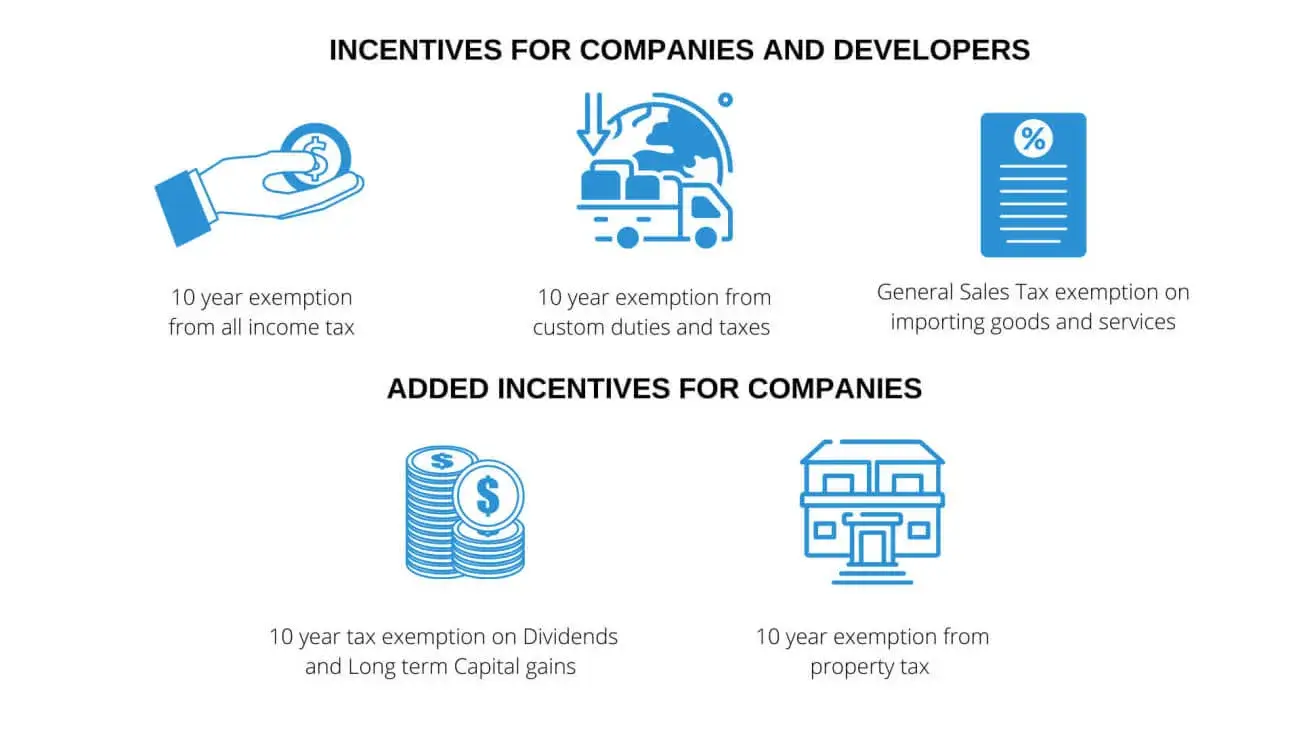
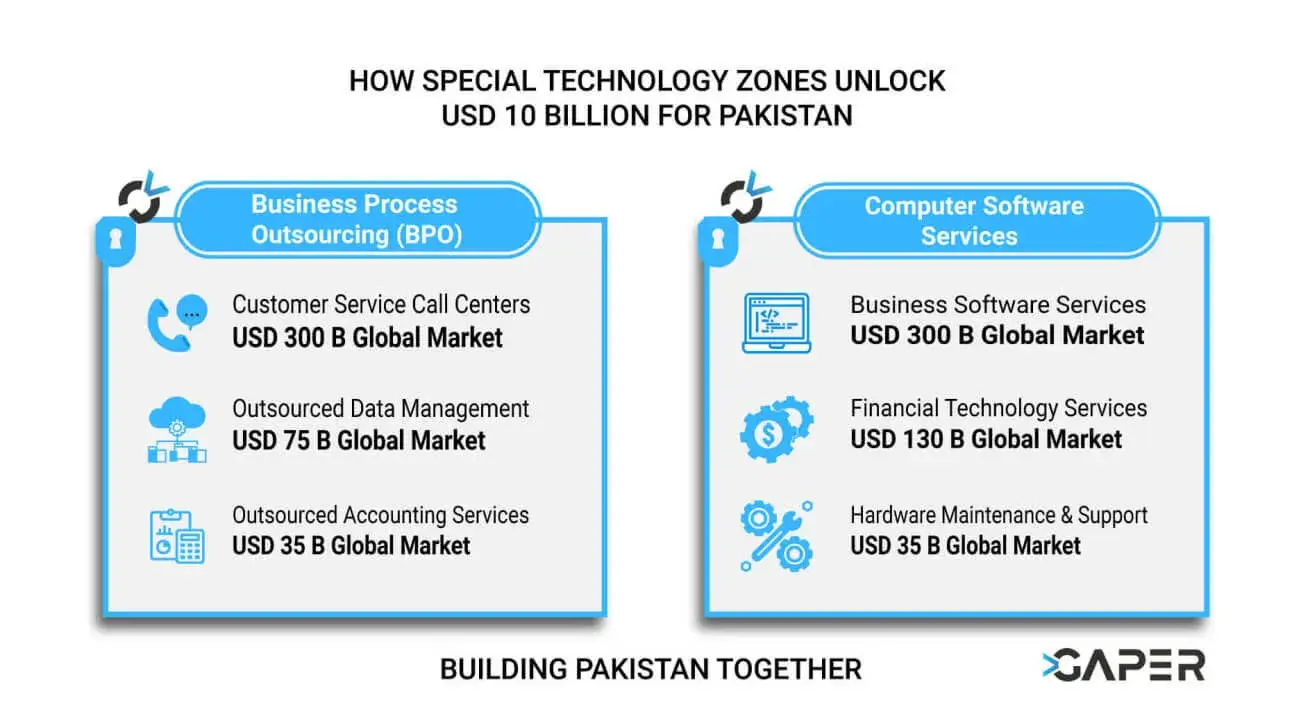
The pandemic has made Remote Employment the talk of the hour. Being forced to go remote, almost overnight, has left the world reeling. Those, who already had a remote culture made the switch quite swiftly, however, the rest are following suit – albeit somewhat reluctantly in some cases. But whether C-Suite Executives like it or not, the world is no longer going back to the old normal. The pandemic made sure of that. Everyone got a taste of Remote and have realized that doing so is a) inevitable b) quite lucrative. The potential of broadening the boundaries (if they are any left in the first place) has unlocked the gateway of hiring better and more affordable talent.
Making the most of this situation, STZs would only cater to increasing and optimizing the true potential of Pakistani Talent and Knowledge.
Top quality ensured or we work for free
